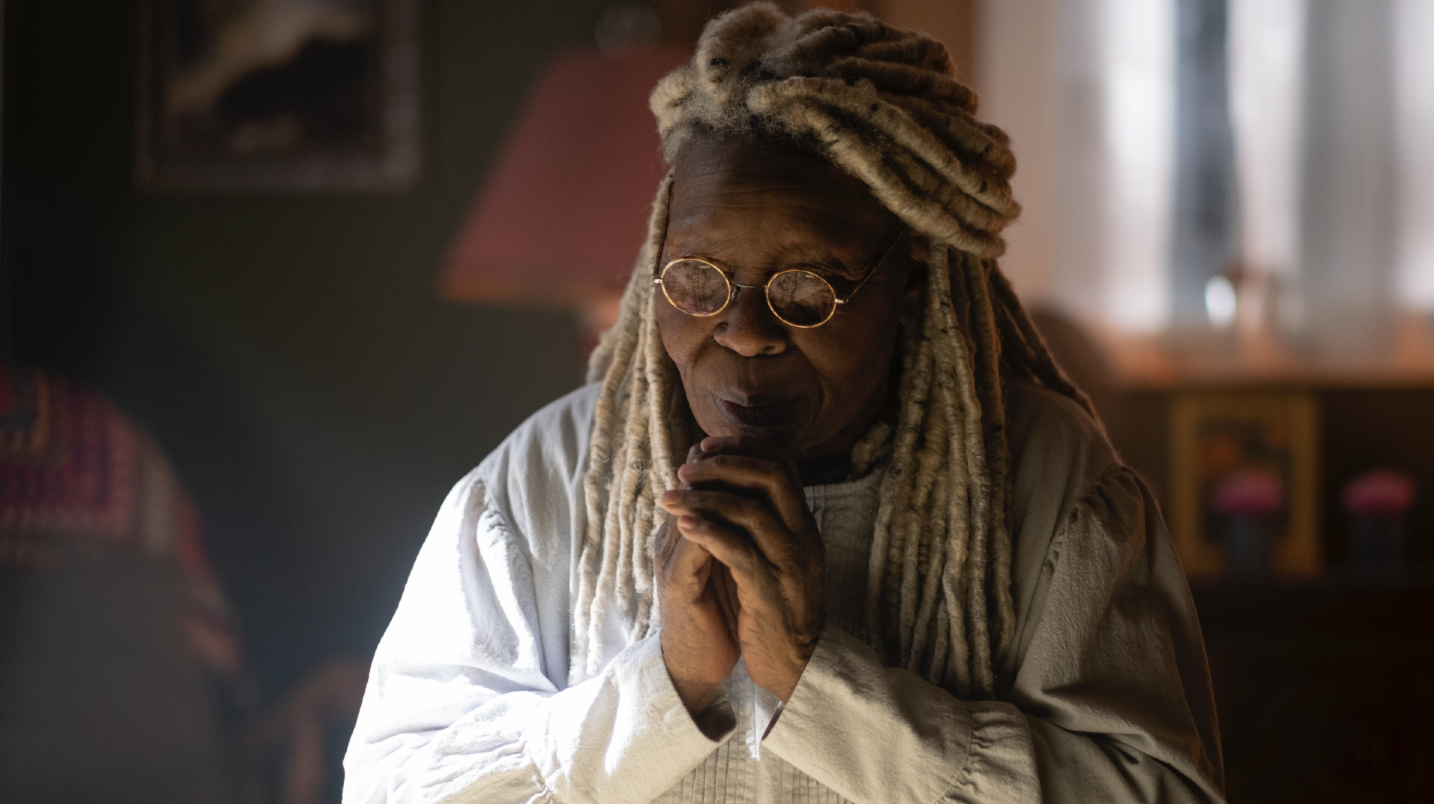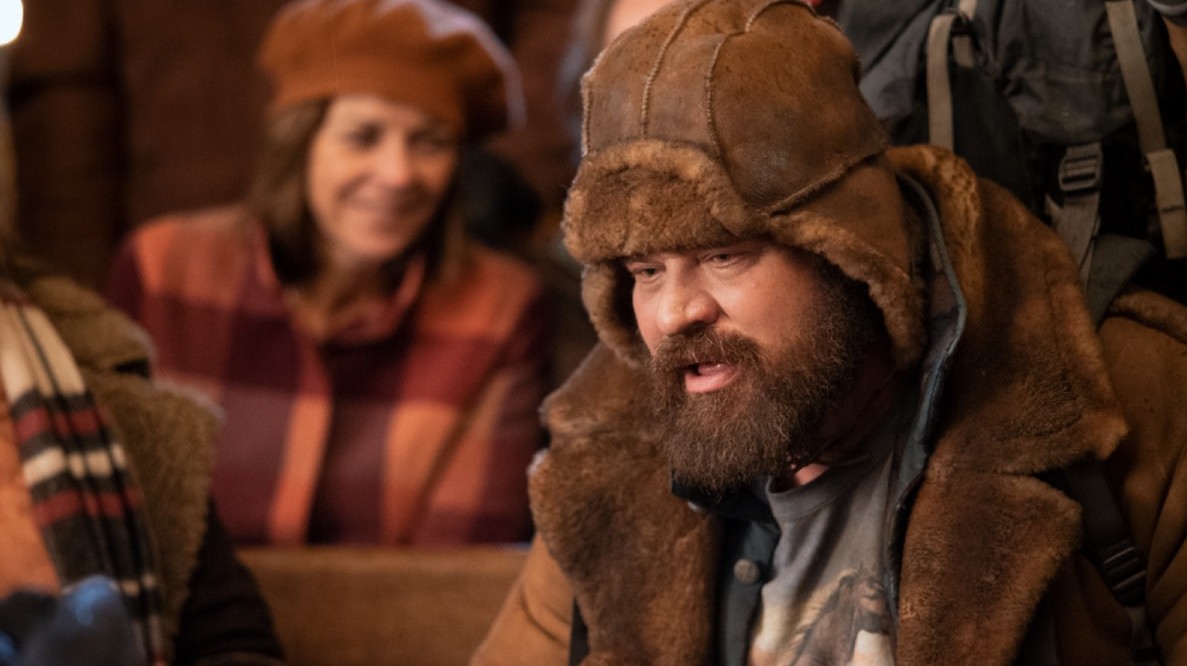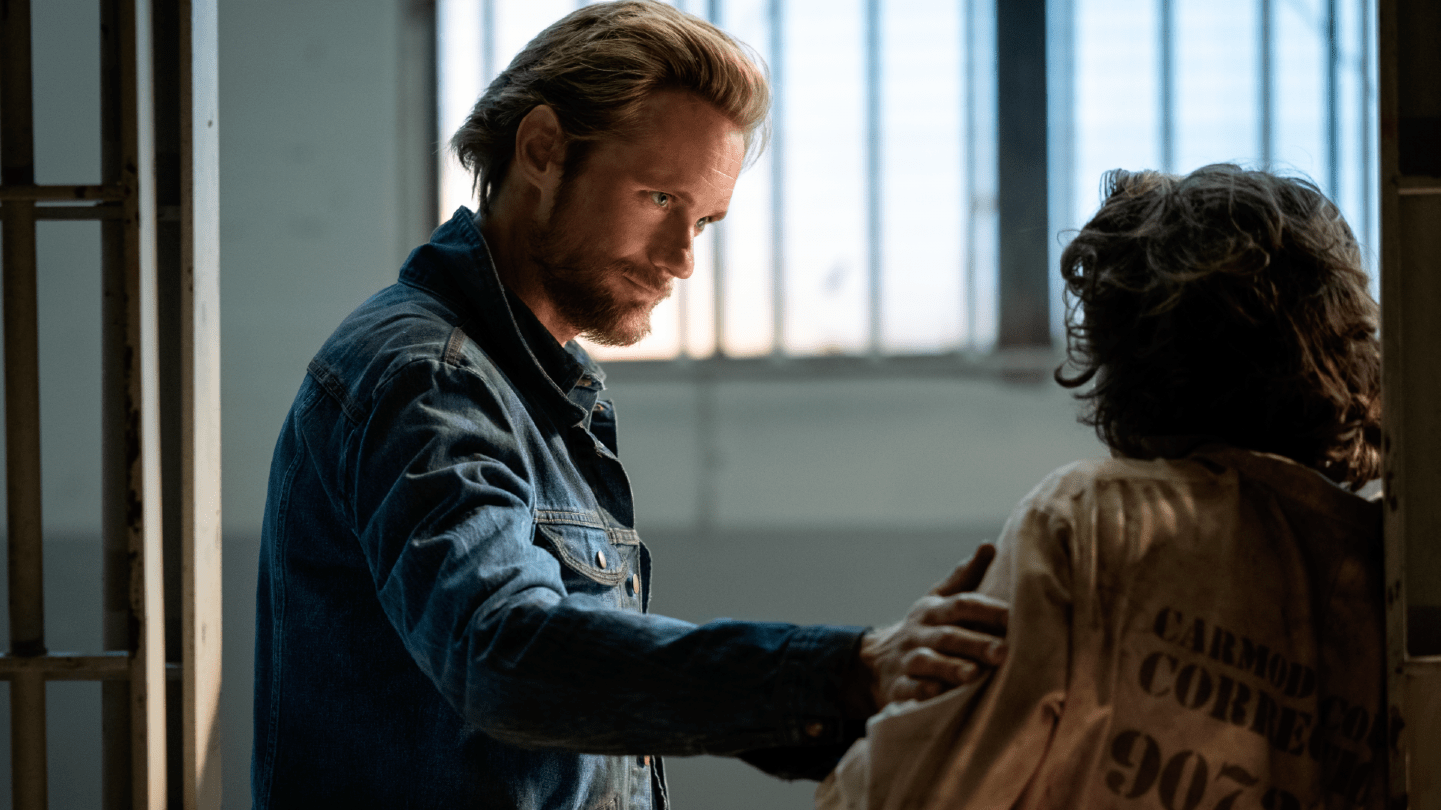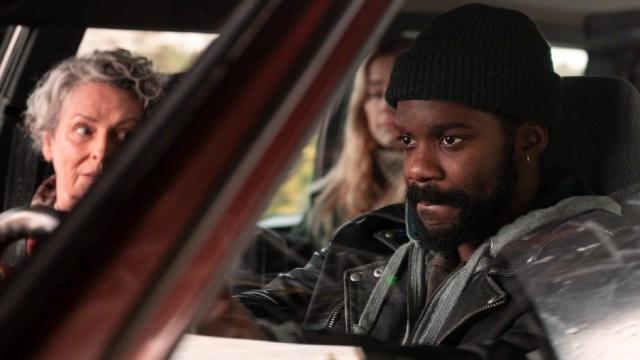Production on CBS All Access’ new adaptation of Stephen King’s The Stand wrapped shortly before the pandemic took hold. With an eerie new context now couching its release, the series aims to update the 1978 novel, which was previously made into the 1994 miniseries and features a new ending written by King himself.
A recent press day for The Stand brought together cast and crew for roundtable interviews, which Gizmodo participated in. The refrain of “yes, we know this ripped-from-the-headlines stuff is spooky” was repeated by almost everyone involved with the project. However, they also pointed out that the in-story plague, known as Captain Trips, is really just a catalyst to get to the real plot, which sees America’s drastically reduced population divided in loyalty between the benevolent Mother Abagail (Whoopi Goldberg) and the malevolent Randall Flagg (Alexander Skarsgård).
Earlier this year, at New York Comic Con, Goldberg spoke about bringing Mother Abagail into 2020, given the character’s prior association with outdated and offensive stereotypes. Last week, executive producers Benjamin Cavell and Taylor Elmore explained a bit more about how The Stand, circa now, found a way to do that.
“Certainly Whoopi is very aware of the ‘Magical Negro’ trope, and so from the very beginning, we were talking to Whoopi about, essentially, how we couldn’t fall into that. At all costs, Mother Abagail had to be a real person, with real contradictions and real doubts, and be very grounded in reality,” Cavell said at the roundtable. “She had lived a life before [the events of The Stand] that wasn’t necessarily always exemplary. As Whoopi would say to us, she’s buried husbands, she’s run around, she’s sown her wild oats. She’s lived. And now at what she assumed would be the end of her life, when she’s 108 years old, she finds that ‘Oh wait, I’m the vessel, I’m the messenger of whatever this power is that’s talking to me?’ It’s just as much of a surprise to her in some ways as it is to anyone else, and she’s trying to roll with it — but she never stops being a grounded, real person.”

Among the other characters that were specifically updated, Cavell said that Tom Cullen — played by actor Brad William Henke, who does not have a developmental disability — has a more nuanced portrayal in this version. “Tom Cullen is a character who I certainly felt strongly about bringing into the modern-day,” Cavell said. “In the novel, he feels a little bit like Lenny from Of Mice and Men sort of transposed into this book, really inhabiting the trope of ‘this is a child trapped in an adult body.’ Taylor and I have talked a lot about this and talked with Brad about it, [and] in our experience a person who is developmentally disabled isn’t in the dark about the idea that they have differences in the way that they process information. It’s not a child trapped in a grown-up body, at least in the way that I understand that, which is a lack of self-awareness — childlike equals not quite self-aware in the way that you expect a grown-up to be.”
Cavell continued. “It was very important to us to have Tom not [be] in the dark about having his deficits or his challenges, but that he’s found a way to navigate the world. And it was important for us to try to be honest about that experience and not play him as a trope, but as a real person who’s lived a life before Captain Trips.”
Henke agreed, explaining that he based his performance in part on a high school friend who suffered a head injury playing football in college. “I saw him a couple years later and he was disabled, and he said to me, ‘In here, still me.’ And that really always stood with me: he just couldn’t communicate to you the thoughts he was having. So I just tried to make [Tom] not one-dimensional…in the past, characters like this were played one-dimensionally sometimes. And I feel it’s very important to show how much I feel and what I do think, and my character showed my heart a lot and he comes through for people. So there are so many different dimensions to him that, hopefully, I was able to show.”

Another character who’s changed from the book and the 1994 miniseries is Larry Underwood — written as a white musician who sort of co-opts Black culture, now played by a Black actor, Watchmen’s Jovan Adepo.
“[Executive producer] Josh [Boone] was very clear that he wanted my version of Larry Underwood, and he wanted it to feel organic…I definitely had the freedom to kind of figure out what Larry was going to be to me and for our audience,” Adepo said. “I was looking for, if Larry’s going to be a Black man in this version, what would that look like? …It was a lot of fun to do. But more than anything, I think that his personality and his core, his essence that people have come to admire from being fans of the book is still there.”
The Stand has a huge cast, but one of the “characters” is the deadly plague itself, which turns the world upside down as the series begins. While bringing their version of the story into 2020 was important to Cavell and Elmore, they also made it a point to keep the symptoms of Captain Trips as close to the book as possible. Even if that meant getting super-squishy at times.
“It felt like it was important to us not to run away from the ‘tube neck,’ which is such an iconic part of the book, but at the same time to find a way to really ground that and really make it feel visceral and real,” Cavell said, praising the series’ VFX supervisor, Jake Braver. “There’s moments where you sort of see the tube neck react when somebody’s breathing. To really make that feel like an actual, visceral part of a human body, and still feel like the kind of horrifying Stephen King disease that’s described in the book.”
Added Elmore, “The disease in the book is portrayed very graphically and I believe it’s a Stephen King semi-quote, ‘I try to do the best I can making horror work, but if I have to I’ll go for the gross-out.’ And once in a while we went for the gross-out. Mucous is gross, but it tells the story.”
Though the pandemic is visually memorable, not to mention the big catastrophe that sets the entire story in motion — the producers emphasised their belief that The Stand is about a lot more than just a plague. It’s way more focused on what comes after. “[It’s about] this question of well, if you had the chance to press the reset button on humanity or human civilisation, what would you do? How would you behave? What are the fundamental rules?…What does society owe the individual? What does the individual owe to society? What do we owe to each other?” Cavell said.

What’s more, The Stand isn’t just a stark clash between sides. “We hesitate to call it a tale of good versus evil because on the evil side, within that spectrum, there are degrees of moral turpitude and moral questioning,” Elmore said. “Randall Flagg is the apotheosis of evil, but the people who are gravitating towards him are just people who are trying to figure themselves out. Some of them are evil…[but] some of them are just mixed up.”
Added Cavell, “It was very important to us from the beginning to portray Flagg as somebody who a viewer might see and say, ‘You know what, if I were in this horrifying situation amidst all this chaos and confusion, and there was this guy who looks like that and is charming like that, has magical powers and at least claims to have a handle on what’s going on and what all this means, I might very well follow that person.’ We certainly want to then show in our telling the places where we would, I hope, start to lose faith and think ‘Wait is this really what I’m signing on for?’ But I don’t think either of us frankly is interested in just ‘evil’ with a capital E. That’s not very interesting.”
The first episode of The Stand, which runs for nine episodes, premieres December 18.
